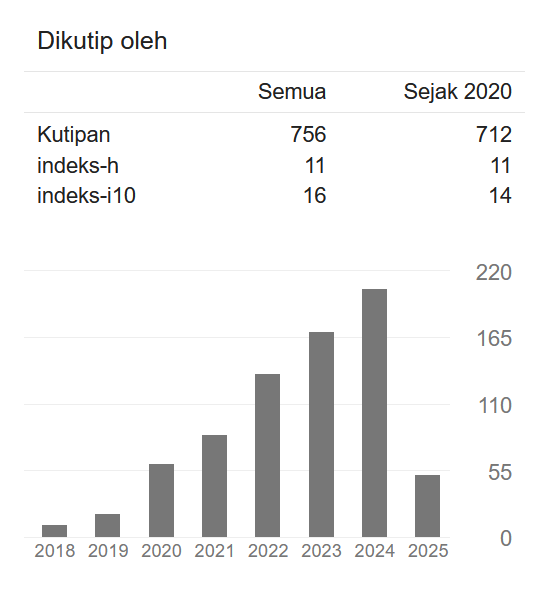Fiqih Sebagai Traffic-Light : Cermin Formulasi Fiqih ‘Umar Ibn Al-Khaththab
Cermin Formulasi Fiqih ‘Umar Ibn Al-Khththab
DOI:
https://doi.org/10.19109/medinate.v15i1.3771Keywords:
Traffic-Light, Fiqh, Umar Ibn Al-KhththabAbstract
This paper is entitled Fiqh as Traffic-Light: Mirror of Fiqh Formulation ‘Umar ibn al-Khaththab. The author wants to express the original fiqh that was advanced by the scholars and the majority of ‘Umar ibn al-Khaththab through the study of literature. This literature research study, therefore, uses qualitative data. The data is analyzed with relevant rules, especially Islamic maqshid rules. Based on studies and research conducted, the results are obtained that: First, fiqh is the result of human thought about Islamic law which is understood from the arguments of the Sunnah Al-Qur'an. Therefore, it can be used with a variety of considerations, making it suitable for every time and every place. Second, according to ‘Umar ibn al-Khathtab, the second Caliph, fiqh was the same as traffic light. Traffict-light work for traffic, while fiqh is done as a regulator of the journey of human life. The purpose of traffic-light is to realize the benefit of cross-country, while fiqh is to realize the benefit of human life. Therefore, if it cannot realize benefit, it can be shifted in a way that will bring benefit.
References
.
Abu Yusuf, t.t. al-Kharaj, (Beirut: Dar al-Fikr).
Abu Zaid, Farouq. t.t. Asy-Syari’ah al-Islamiyah Bain al-Muhafizhiin wa al-Mujadidin, (Kairo: Dar al-Mauqif).
Al-‘Asqalani, Ibn Hajar. Bulugh al-Maram, (Mesir: Dar al-Fikr al-‘Arabi).
Ad-Dumyathi, Ahmad. t.t. Syarah al-Waraqat. Beirut: Dar al-Fikr.
Az-Zuhaili, Wahbah. 1975. Ushul al-Fiqh al-Islami, (Beirut: Dar al-Fikr).
Hakim, ‘Abdul Hamid. t.t.: as-Sullam.Jakarta: Sa’adiyah Putra.
Ibn Katsir, 2008. Tafsir Ibn Katsir (terjemahan). (Jakarta: Yayasan asy-Syafi’i).
Ibn Khaldun, Abdurrahman. 1977. Muqaddimah, (Beirut: dar al-Fikr)
Ibn Qasim, al-Bajuri. t.t. Hasyiyah al-Bajuri, (Indonesia: Dar Ihya` al-Kutub al-‘Arabiyah).
Ibn Qayyim, Syams ad-Din. 1977. I’lam al-muwaqqi’in ‘an Rabb al-‘Alamin, (beirut: Dar al-Fikr).
Ibrahim, Duski. 2004. Ushul al-Fiqh, (Palembang: IAIN Press).
Ibrahim, Duski. 2008. Metode Penetapan Hukum Islam: Membongkar Konsep al-Istiqra` al-Ma’nawi, (Jokyakarta: ar-Ruzz Media).
Ibrahim, Duski. 2014. Kaidah-Kaidah Fiqih: Pedomam Praktis dalam Penyelesaian Masalah Hukum Islam Kontemporer, (Palembang: Grafika Telendo Press).
al-Jurjani, Muhammad. 1979. At-Ta’rifat, (Beirut: Dar al-Fikr).
Khallaf, Abdul Wahhab. 1968. ‘Ilm Ushul al-Fiqh, (Beirut: Dar al-Fikr).
Khallaf, Abdul Wahhab. 1979. Khulashah Tarikh at-Tasyri’ ,(Beirut: Dar al-Fikr).
al-Khin, Mushthafa Sa’id. 1985. Atsar al-Ikhtulaf fi al-Qawa’id al-Ushuliyah fi ikhtilaf al-fuqaha`, (Damaskus: Mu`assasah).
Al-Mahalli, Abu al-Ma’ali. t.t. al-Waraqat. Beirut: Dar al-Fikr.
Ma’luf, Louis, 1973. al-Munjid fi al-Lughah wa al-A’lam, Beirut: Dar al-Masyriq).
Ridho, Muhammad Rasyid. 1967. Tafsir al-Manar, (Beirut: Dar al-Fikr).
asy-Syahrastani, t.t. al-Milal wa an-Nihal, (Beirut: Dar al-Fikr).
asy-Syatibi, Abu Ishaq Ibrahim ibn Musa.1973. al-Muwafaqat fi Ushul asy-Syari’ah, (ar-Riyadh: Maktab ar-Riyadh al-hadits).
Wehr Hans, 1960. Dictionary of Modern Written Arabic,(London: Cambridge).
Zaidan, Abdul Karim. 1968. Al-Wajiz fi Ushul al-Fiqh, (Beirut: Mu`assasah ar-Risalh).
Zed, Mestika 2003. Metode Penelitian Kepustakaan. Jakarta : Yayasan Obor Indonesia








